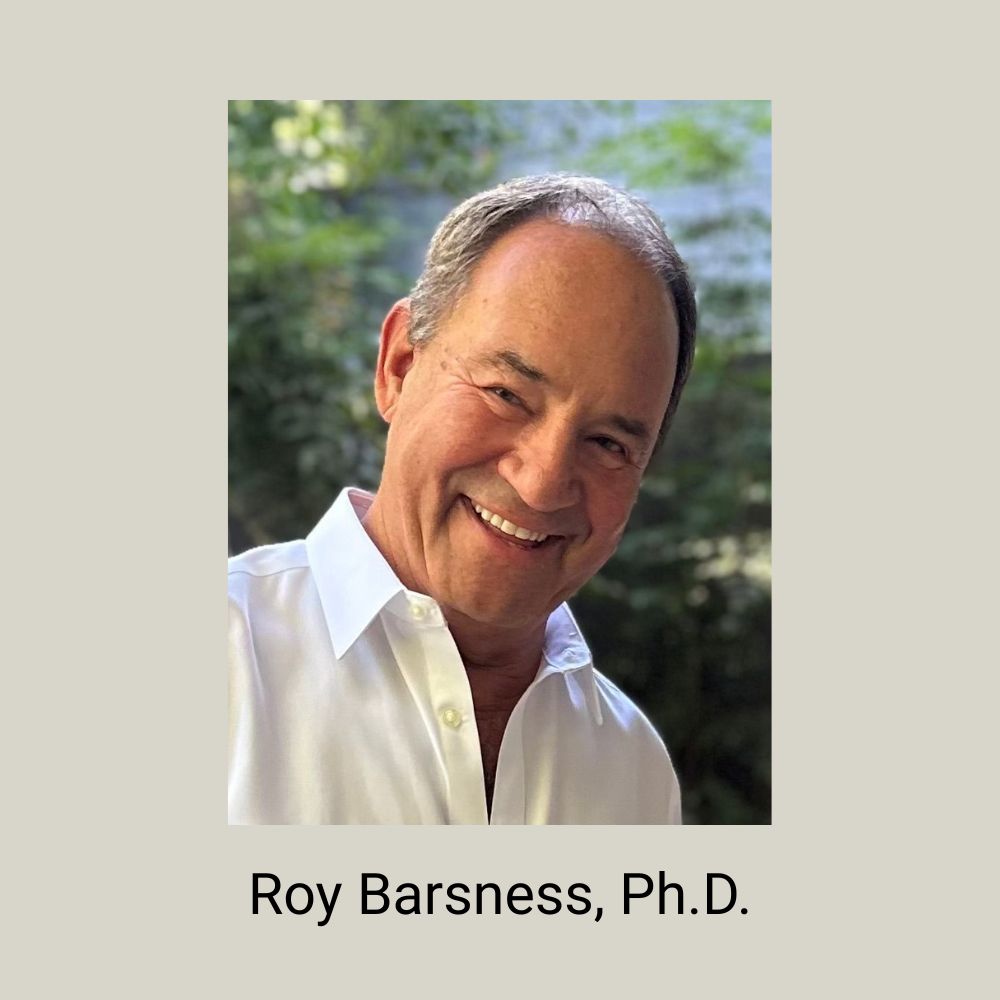IMPORTANT: Always make OSPS purchases using the SAME email address.
This helps our system apply your payment to your existing account.
Emotional Witnessing: Supervisory and Clinical Encounters on the Affective Edge (student)
Saturday, January 10th 2025 9:00am - 12:00pm
Title: "Emotional Witnessing: Supervisory and Clinical Encounters on the Affective Edge "
Speaker: Roy Barsness, Ph.D.
Cost:
$100 for Non-Members
$80 for Members - Log into the Member Area to purchase
$20 for *Students - Click here to request a student discount
$0 for current Foundation 1 Students
*Full-Time Undergraduate, Graduate, Doctoral students, and LMFT, LADC, LPC, Social Work, Psychology, and Psychoanalytic licensure/certification candidates
Credit: 3 CEUs approved for Psychologists, Social Workers, LPCs/LMFTs and LADCs
Description:
***NEW LOCATION FOR 2025-2026: White Buffalo Event Center***
- 8:30am-9:00am: Registration & Coffee Social (pastries, coffee, and tea provided)
- 9:00am-12:00pm: Presentation (White Buffalo Event Center)
Conventional supervisory relationships follow a teaching model, where the more clinically experienced supervisor assumes the role of advisor, evaluator, and expert. In this traditional framework, supervision leans heavily toward cognitive analysis and case formulation, privileging theoretical knowledge and diagnostic reasoning. Although contemporary psychoanalytic models of supervision increasingly challenge this hierarchical approach, they too most often default into supervisory practices that continue to position the supervisor as the authority and gatekeeper of truth.
This seminar centers on Dr. Barsness’s new book, Psychodynamic Supervision: In a New Key (Routledge, 2025), which proposes a fresh new model rooted in contemporary psychoanalytic theory that emphasizes the co-constructed nature of the supervisory relationship. This approach recognizes the therapist as holding primary, firsthand knowledge of the patient. In contrast to traditional models, it then becomes the supervisor’s responsibility to immerse themselves in the patient’s narrative - as conveyed through the therapist’s affective experience—to also attend to the affective states elicited within themselves—and to bring an experienced, reflective stance rooted in their own subjectivity to the supervisory conversation. At the intersection of these two subjectivities, a richer perspective emerges—one that brings to the light lapses in affective attunement, the power of the therapeutic use of self, enactments and breakdowns within the treatment.
This model shifts emphasis from cognition to affect, privileging the therapist’s subjectivity as the principal access point to the patient’s internal and relational world. The supervisor’s subjectivity is equally engaged, with the patient no longer seen as an object of analysis but as a source of inspiration that expands the supervisee’s understanding. This immersive process calls for a new language—one that moves beyond interpretation as the primary mode of communication and toward a more nuanced, emotionally grounded dialogue.
In this supervisory paradigm, traditional cognitive formulations give way to an attuned capacity to metabolize affective and intuitive responses, drawing on the dynamic “data” that emerges in the intersubjective field between therapist and patient. Participants learn how to track and process their emotional responses by linking their affective experiences to their understanding of the patient’s history and by identifying the ways in which the patient’s narrative patterns repeat within the therapeutic relationship itself.
Summary
Traditional supervisory models are typically hierarchical, with the supervisor positioned as the expert who analyzes cases through a cognitive, theory-driven lens. Dr. Barsness introduces a relational model that redefines supervision and clinical practice as a co-constructed intersubjective process recognizing our roles as holding, witnessing and participating in unformulated or dissociated emotional states
which in turn shifts our focus from analytic conversations from interpretation to emotionally attuned dialogue, encouraging participants to metabolize affective responses that deepen therapeutic insight and action.
Learning objectives:
- Assess and critique a new model of supervision grounded in relational psychoanalysis in contrast to the more common supervisory process that offers cognitive case formulations of the presenting case.
- Develop a new language moving from interpretation into complex dialogue.
- Discuss the ethical implications of non-disclosure and the possibility of possible violation of professional integrity through withholding and anonymity.
- Apply the principles of the new supervisory method (referred to as M – Muse; A- Affect; M- metabolization; A- articulation and L- Learning) in their supervisory practices.
- Evaluate how the supervisory model is also useful and applicable to one’s clinical practices.
References
Barsness, R. (2025). Psychodynamic Supervision Theory and Practices: In a New Key. London. Routledge. London. Routledge.
Barsness, R. (2018). (Ed.) Core Competencies in Relational Psychoanalysis: A guide to Research, Study and Practice. London. Routledge.
McWilliams, N. (2021). Psychoanalytic Supervision. Guilford Press. NY.
Bass, T., Hoffman., McWilliams, L., Schmolke, M. (2023). Supervision and Psychoanalysis. London. Routledge
Speaker’s bio:
Dr. Roy Barsness is the author of the text, Core Competencies in Relational Psychoanalysis: A Guide to Practice, Study and Research (Routledge, 2018) and author of the text: Psychodynamic Supervision: In a New Key (Routledge, 2025). He has published several professional articles, presents frequently at professional conferences and teaches nationally and internationally on relational psychoanalysis. He is the Founder and Director of the Contemporary Psychodynamic Institute, former Professor of Psychology and Academic Dean at The Seattle School of Theology and Psychology. He was formerly the Clinical Director of the Clinical Psychology Program at Seattle Pacific University and Clinical Associate Professor at the University of Washington School of Medicine. Dr. Barsness has been in independent practice for over thirty-five years.
